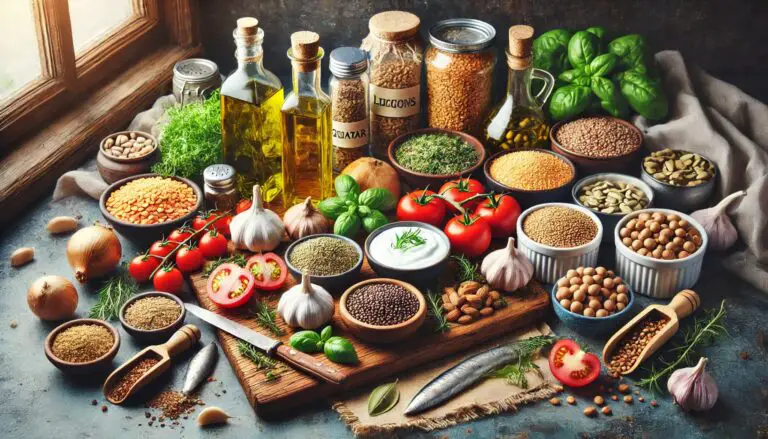Discover the Most Popular Greek Meats – A Guide to Traditional Favorites
Meat plays a significant role in Greek cuisine, often serving as the centerpiece of hearty and flavorful dishes. From slow-cooked lamb to chargrilled souvlaki, selecting the right meat is essential to achieving authentic flavors. This guide will help you choose and prepare different types of Greek meats.
Different Types of Greek Meats
Lamb
Lamb is deeply ingrained in Greek culinary traditions, often served during celebrations like Easter or family gatherings. Is one of the most popular Greek Meats.
Cuts to Choose:
- Leg of Lamb: Ideal for roasting with garlic, lemon, and herbs.
- Lamb Shoulder: Perfect for slow-cooking in stews like kleftiko.
- Lamb Chops: Best for grilling with a sprinkle of oregano and a drizzle of olive oil.
- Greek Lamb Meatloaf
Chicken
A lighter and versatile option, chicken is used in dishes ranging from grilled souvlaki to baked casseroles.
Cuts to Choose:
- Boneless, Skinless Breasts: Great for quick sautés or skewers.
- Thighs: Juicier and more flavorful, excellent for roasting or braising.
- Whole Chicken: Often roasted with potatoes, lemon, and herbs for a comforting meal.
Pork
Pork is a staple in Greek street food and traditional recipes.
Cuts to Choose:
- Pork Tenderloin: Suitable for grilling or marinating.
- Pork Shoulder: Ideal for slow-cooked stews or gyros.
- Pork Belly: Often used in cured forms like pancetta or for roasting.
Beef
While less common than lamb or pork, beef appears in dishes like moussaka or keftedes (meatballs).
Cuts to Choose:
- Ground Beef: Essential for layered casseroles or stuffed vegetables.
- Beef Chuck or Brisket: Works well in slow-cooked recipes like stifado.
- Steaks: Occasionally grilled and paired with Mediterranean flavors.
Seafood
Greece’s coastline provides an abundance of fresh fish and shellfish.
Choices to Consider:
- Whole Fish (Sea Bream, Sea Bass): Typically grilled and served with ladolemono (lemon-olive oil sauce).
- Octopus: Charred and tender, served as a meze or salad topping.
- Shrimp: Commonly sautéed with garlic, tomato, and feta in saganaki dishes.
How to Choose the Best Greek Meats
Quality Matters:
- Opt for locally sourced or organic meats for better flavor and texture.
- Look for fresh cuts with no discoloration or off smells.
Consider the Cooking Method:
- Grilling: Choose tender cuts like lamb chops, pork tenderloin, or chicken breasts.
- Slow-Cooking: Opt for tougher cuts like lamb shoulder or beef chuck, which become tender over time.
- Roasting: Select whole chickens or large cuts like leg of lamb.
Pair with Greek Ingredients:
- Use classic Greek marinades featuring olive oil, lemon juice, garlic, and herbs like oregano, thyme, and rosemary.
- Add complementary flavors such as feta, tomatoes, olives, and capers.
Popular Greek Meat Dishes
- Souvlaki: Skewered and grilled meat (typically chicken, pork, or lamb) marinated in olive oil, lemon, and oregano.
- Moussaka: A layered casserole with ground beef or lamb, eggplant, and béchamel sauce.
- Kleftiko: Slow-cooked lamb with potatoes, vegetables, and herbs, wrapped in parchment paper.
- Gyros: Thinly sliced, marinated pork or chicken cooked on a vertical rotisserie and served in pita bread.
- Stifado: A hearty beef stew with onions, red wine, and cinnamon.
- Grilled Whole Fish: Fresh sea bream or bass seasoned simply and served with ladolemono.
Tips for Cooking Greek Meats
- Marinate Generously: Allow meats to marinate for several hours or overnight to absorb the flavors.
- Don’t Overcook: Mediterranean meats are often cooked to tender perfection, avoiding dryness.
- Use Fresh Herbs: Enhance the flavors with oregano, thyme, rosemary, or mint.
- Serve with Sides: Pair meats with classic Greek sides like tzatziki, roasted potatoes, or Greek salad.
Choosing the right meat is a crucial step in creating authentic Greek dishes. By selecting quality cuts, pairing them with Mediterranean flavors, and using traditional cooking methods, you can bring the taste of Greece to your kitchen. Whether you’re grilling lamb chops or simmering a rich beef stifado, the right meat will make all the difference.










